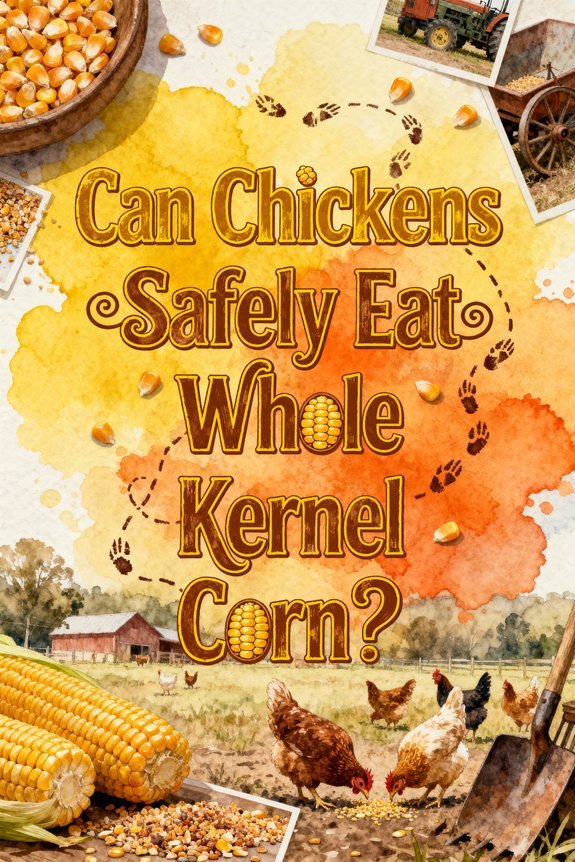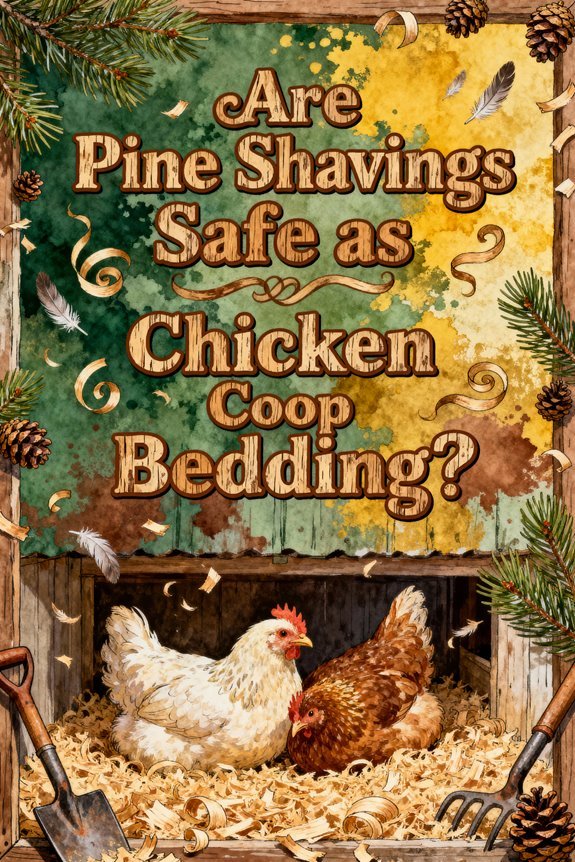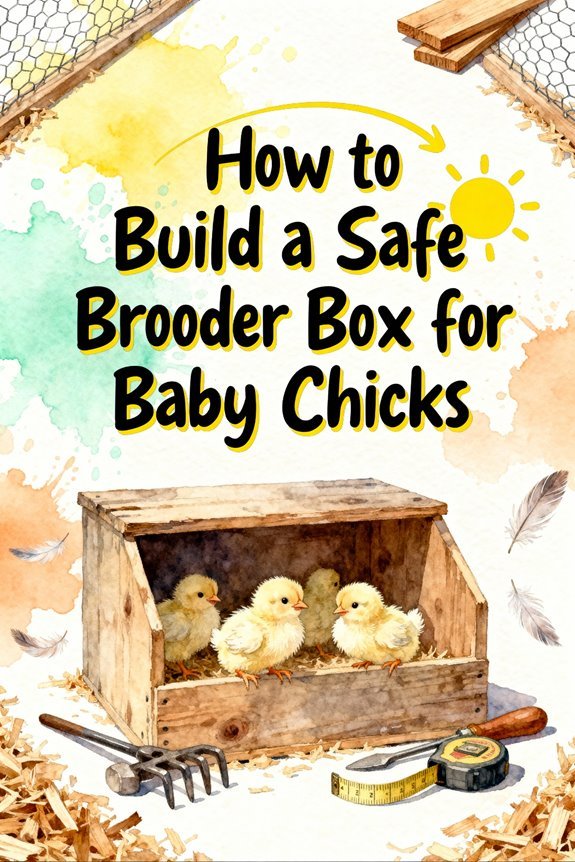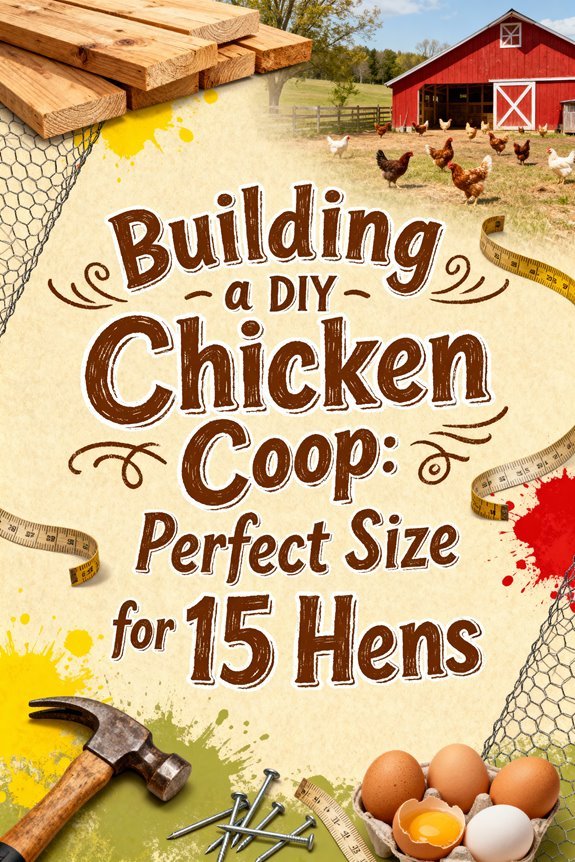Can Chickens Safely Eat Whole Kernel Corn?
You can safely feed your chickens whole kernel corn as a supplementary treat, but don’t use it as their primary feed source. While corn provides energy through carbohydrates, it lacks sufficient protein and nutrients for ideal health and egg production. Your birds will need insoluble grit to properly digest whole kernels, and you should limit corn to 10-15% of their diet. Understanding proper feeding guidelines guarantees your flock’s nutritional needs are fully met.
The Nutritional Value of Whole Kernel Corn
Three key macronutrients define whole kernel corn’s nutritional profile for chickens: carbohydrates, protein, and fats. As a primary energy source, corn’s high carbohydrate content helps maintain your chickens’ body warmth and activity levels, especially during cold weather. However, you’ll need to address potential protein deficiency since corn only contains 9-10% protein, which isn’t sufficient for laying hens or growing birds.
While corn does contain some beneficial nutrients, including B vitamins and minerals like phosphorus and calcium, these levels don’t meet your flock’s daily requirements. The moderate fiber content supports digestive health, but you’ll need to supplement with other feed ingredients to create a complete nutritional profile. Yellow corn varieties also provide carotenoids that contribute to egg yolk pigmentation. Adult chickens can effectively digest and benefit from whole kernel corn, making it an excellent choice for promoting natural foraging behaviors.
Proper Digestion and Grit Requirements
Because chickens lack teeth for chewing, they rely on their gizzard and appropriate grit to properly digest whole kernel corn. You’ll need to provide insoluble grit, like granite pieces, separately from their feed to help break down the hard kernels. The digestion process begins when your chickens swallow whole corn, which then moves to their gizzard where the muscular organ grinds it with the help of grit.
For ideal digestion, you’ll want to verify there’s always fresh grit available, as different grit types serve different purposes. While soluble grit (oyster shell) provides calcium, it’s the insoluble grit that’s essential for grinding corn. Without adequate grit, your chickens won’t properly digest whole kernel corn, which can lead to impaction or poor nutrient absorption. Their unique digestive system allows them to efficiently process corn when provided with proper grit supplementation.
Impact on Egg Production and Quality
While feeding corn to laying hens affects various aspects of egg quality, particle size plays an essential role in determining outcomes. Fine to medium-sized corn particles (605-1,030 µm) produce better results for key quality metrics, including enhanced eggshell thickness and more consistent yolk coloration. You’ll notice improved shell structural integrity and reduced variability in egg components when using these smaller particle sizes. Similar to how poultry dust products help control pests in chicken environments, proper feed particle size helps optimize health outcomes. Commercial brands like starter feeds provide essential amino acids that corn alone cannot supply.
However, whole kernel corn alone won’t support peak egg production due to its low protein content (~9.5%) and insufficient calcium levels. Using corn exclusively as feed can result in reduced egg production. To maintain steady laying rates and quality eggs, you’ll need to incorporate corn as part of a balanced diet with complete feeds. Watch out for overfeeding corn, as it can lead to weight gain in hens and potentially compromise their egg production performance.
Seasonal Feeding Guidelines
As temperatures fluctuate throughout the year, you’ll need to adjust your chickens’ corn feeding regimen to optimize their nutrition and health. During winter, you can safely increase whole kernel corn to 10-15% of their diet, as they’ll need extra energy for generating body heat during cold nights. A good diet integration strategy is to always include layer feed with protein alongside any corn supplementation. Consider supplementing with kelp or oyster to support mineral needs during seasonal transitions. Chickens love to peck fresh kernels directly off corn cobs as an enriching treat.
In summer, while corn won’t dangerously raise body temperature, you’ll want to moderate portions to prevent obesity. Your chickens will naturally eat less feed during hot weather, but maintaining proper nutrition remains essential. Make seasonal adjustments based on your flock’s age and conditions – younger birds need lower corn percentages than mature hens. When increasing corn intake during winter feeding, make sure you’re still providing adequate protein and other nutrients through balanced feed or supplements, especially when pasture access is limited.
Behavioral Responses to Corn Feeding
When chickens encounter whole kernel corn, they display distinct behavioral patterns that reflect their natural foraging instincts. You’ll notice they’ll actively select corn kernels first, demonstrating clear preference in their pecking behavior. This selective feeding promotes natural scratching and foraging activities, which are essential for their behavioral enrichment. Incorporating small amounts of corn helps provide warmth during cold nights.
In terms of flock dynamics, corn feeding sessions create structured social interactions. You’ll need to distribute corn in multiple locations to minimize competition and reduce stress among your birds. Dominant chickens typically control prime feeding spots, but proper distribution guarantees all birds get access. While corn husks can provide enrichment activities, most chickens show limited interest in them due to their fibrous texture. Offering corn in various forms – fresh, dried, or frozen – maintains your flock’s interest and prevents boredom-related issues like feather pecking, while strengthening positive human-animal bonds during feeding time. Regular treats of quality feed should still make up the majority of their diet since corn alone lacks essential proteins and nutrients.
Health Risks and Safety Precautions
Feeding whole kernel corn to chickens requires careful attention to both nutritional balance and potential health risks. You’ll need to watch for signs of corn toxicity from additives, contaminants, or mold that can seriously harm or kill your birds. Never feed them corn products containing salt, sugar, preservatives, or seasonings. Carbohydrates and vitamins make corn a beneficial treat when fed properly. Like asparagus varieties, corn can be served either raw or cooked to provide variety in their diet. Excessive salt in corn products can cause dangerous dehydration in your chickens.
To maintain safe feeding limitations, serve corn only as a treat rather than a primary food source. Your chickens need proper grit to digest whole kernels effectively, and you must provide constant access to fresh water. Always introduce corn gradually while monitoring for digestive issues. Choose quality corn produced specifically for poultry to minimize contamination risks. Watch for changes in droppings or eating habits that might indicate distress from excessive corn consumption.






